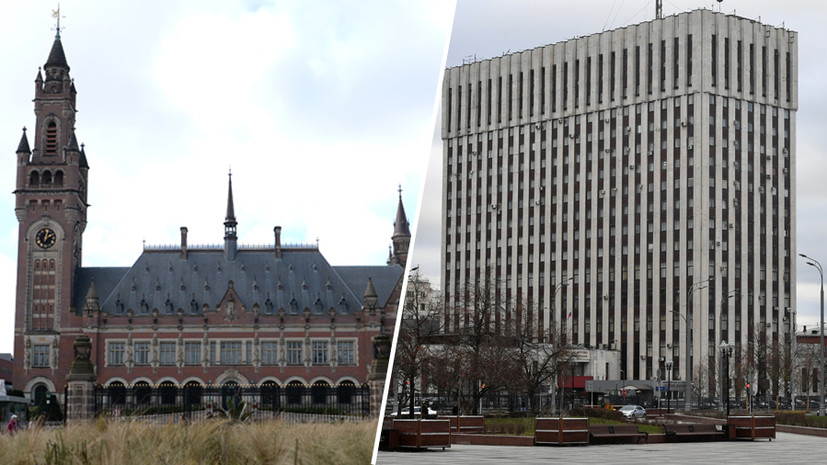Russia will continue to defend its interests in the Yukos case after the decision of the Hague Court of Appeal, the RF Ministry of Justice said in a statement.
“Despite the absence of a clear and unequivocal consent of the Russian Federation to such arbitration, the Hague Court of Appeal did not heed the opinions and arguments of the Hague Circuit Court,” the agency said.
The Justice Ministry said that the Russian side will appeal by cassation appeal the verdict handed down by the appellate court in the Supreme Court of the Netherlands. These intentions were confirmed by the head of the International Center for Legal Protection Andrei Kondakov, representing the interests of the Russian Federation in this case.
“The Russian Federation will continue to uphold its legitimate interests and, on appeal, will challenge the verdict issued by the appellate court in the Supreme Court of the Netherlands,” RIA Novosti quoted Kondakova as saying.
The lawyer emphasized that the decision of the Hague Court of Appeal runs counter to the position of the European Court of Human Rights, which earlier in the case of the Oil Company Yukos v. Russia refused to acknowledge a violation of Article 18 of the Convention for the Protection of Human Rights and Fundamental Freedoms.
Kondakov recalled that the ECHR had completely rejected the allegations against the Russian Federation of “political motivation” and the “repressive nature” of the persecution of Yukos, as well as the alleged alleged discrimination against it by the Russian authorities.
In addition, the ministry drew attention to the fact that the Dutch court did not take into account the illegal use by the former shareholders of Yukos of the mechanism of the Energy Charter Treaty (ECT). The Ministry of Justice indicated that this document was not ratified by the Russian side and was applied only on an interim basis to the extent that it did not contradict the current Russian legislation.
“The arbitration clause contained in the Energy Charter Treaty did not fall within the scope of such temporary application,” the ministry said.
Recall that on February 18, 2020, the Hague Court of Appeal overturned the Dutch court of first instance and upheld the decision of the Hague arbitration on July 18, 2014. According to these rulings, Russia is obliged to pay $ 50 billion to the majority ex-shareholders of the Yukos oil company as compensation for the allegedly caused her actions of damage.
The agency’s report emphasized that the Hague Court of Appeal ignored the fact that the former Yukos shareholders were not bona fide investors, but gained control of the enterprise through illegal actions, including conspiracy and bribery of officials.
The Justice Ministry indicated that in the process of managing Yukos, the former majority owners committed such unlawful acts as massive tax evasion, illegal withdrawal of assets abroad and money laundering.
“Serious Legal Mistakes”
In July 2014, The Hague Arbitration decided that Russia had violated the Energy Charter and awarded compensation in the record amount of $ 50 billion to three companies that were shareholders of Yukos.
Soon after the announcement of this verdict, the Russian Ministry of Finance indicated that the Hague Arbitration did not have jurisdiction over Yukos issues. The Office cited a list of significant flaws in the consideration of the case, pointing to the "one-sided study and one-sided application of evidence." In December of that year, it became known that Russia challenged the decision of the Hague court.
In April 2016, The Hague Circuit Court ruled that the Hague Arbitration Tribunal, which considered the Yukos case, had no jurisdiction over the case. The Russian side, in turn, came up with a detailed response to the appeal in 2017, where it also indicated that the arbitration did not have competence to consider the claim of the former Yukos shareholders.
In September 2019, hearings began in the Hague Court of Appeal, following which the court decided to recover $ 50 billion from Russia in favor of the former shareholders of Yukos.
As explained by Andrei Kondakov, a tendency has formed in relation to the suits of Yukos. He explained that at the stages of lawsuits and arbitration proceedings, ex-shareholders of Yukos win, but later these decisions are canceled by state courts.
“All decisions on Yukos (private. - RT ) arbitrations contain serious legal errors, and therefore they were quashed by state courts. What happened with the main lawsuit in 2016: the arbitral awards were canceled, ”TASS lawyer quoted as saying.
According to him, the decision made on Tuesday for the first time violated this trend. At the same time, Kondakov expressed the hope that the Russian side will be able to restore the first decision at the level of the Supreme Court of the Netherlands.

